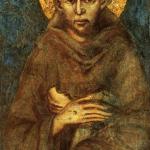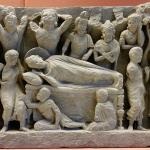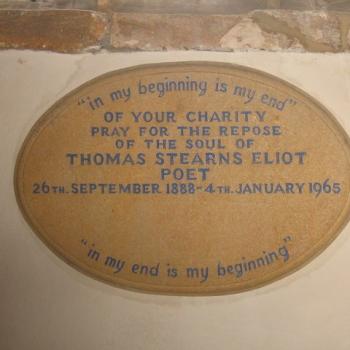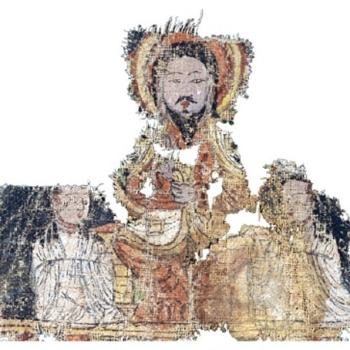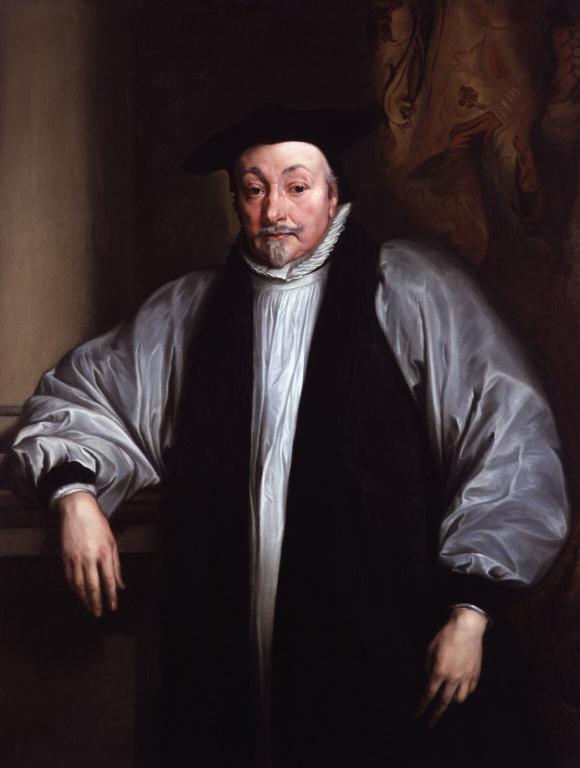
(by Anthony van Dyck c 1636)
William Laud was born on this day, the 7th of October, in 1573.
He was born into a family of clothiers, attended local schools, and then studied at St John’s College, in Oxford. He took his BA in 1594, his MA in 1598, and his doctorate in 1608. He was ordained deacon in January and priest on the 5th of Apirl, in 1601. In 1611 Laud was elected president of St John’s college.
His ecclesiastical career proceeded apace, he was appointed dean of Gloucester in 1616. While dean he re-introduced more traditional Catholic oriented forms. In 1626 he was consecrated bishop of Bath and Wells. And in 1633 he was appointed Archbishop of Canterbury.
His tenure was controversial. He pursued uniformity upon the English church in a decidedly liturgical and Catholic direction. As the English Civil War was setting up he was first accused of treason by the Long Parliament in 1640, the next year imprisoned in the Tower of London, tried unsuccessfully in 1644, then condemned directly by parliament and executed on the 10th of January, in 1645.
Today the Anglican communion dedicates the 10th of January as a feast.
What makes him important to remember is how he was central in the establishment of what would become the High Church party in the Church of England, and eventually the Anglo-Catholic movement. He is known for many things additionally, principally as a relentless enforcer of his reforms of the reformed church, which included active persecution of the Puritans. Along the way he made more than his share of enemies, and as the Civil War was warming up, well, it led directly to his imprisonment and death.
On the plus side of the register in addition to liturgical reforms that laid the ground for the High Church movement, he actively encouraged scholarship within the church, and reached out to the Eastern Orthodox.
D. H. Pennington, writing for the Encyclopedia Brittanica summarized how “Laud was never much liked, even by his allies. A humourless, dwarflike figure, uninterested in court pleasures, unmarried, tactlessly impartial in his condemnations, he could never establish a party of influential supporters.” But added, “his devotion to a coherent purpose and his repudiation of hypocrisy, compromise, and corruption in allies and enemies of whatever class were rare and admirable qualities.”
I found it interesting that the Wikipedia article on the archbishop suggests his private diary revealed homosexual longings, which he never appears to have acted on. I’m sure the analytical can work with that small bit of information. A complicated man, no doubt.
Me, I find him an important, if difficult figure in the development of the Anglican church, stopping the slide into simply becoming another branch of the Calvinist church, and opening the doors that allowed a genuine middle way for Christianity – which as a follower of another middle way, makes me feel him part of the family of those seeking authentic spiritual paths through the dangerous currents of our lives. That he failed in many ways, and, into the bargain did bad things along that way, but at the same time set wheels in motion that have had good results says a lot about the mysteries of life.
So, rest in peace, archbishop. Good followed in your wake.


